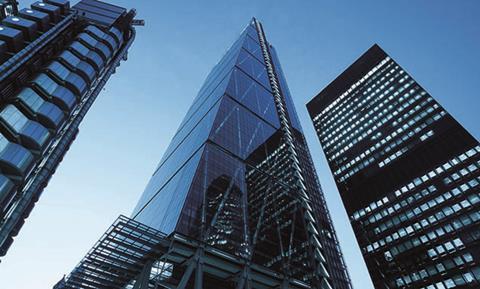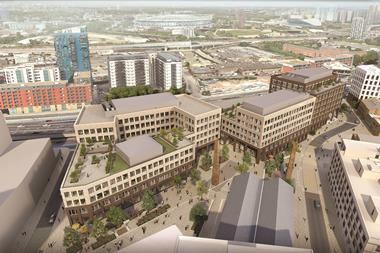Can we be optimistic about the future of the office, when homeworking continues to be our modus operandi with currently no end in sight? We have seen impactful, unprecedented and rapid change in the last six months, including the recent government u-turn after initially encouraging staff back to work, and companies have reacted differently.

Some, such as Schroders, announced a new long-term approach to flexible working with no mandated requirements for time in the office. This prompted fear of growing vacancies, but others have not been so hasty.
Demand for office space will not disappear. Social distancing requirements may in fact force companies to retain more space for fewer people. Even if work is done at home, offices will be required as a space for teams to convene. After all, physical interaction is a key ingredient for the success of individuals and businesses. However, commutes will likely be more limited, reducing the need for so much inner-city space. Companies taking multiple smaller sites to accommodate this will up the demand in suburban locations.
With such a fluid set up for staff, businesses will have a whole host of new requirements. This may prompt a boost in market activity as companies look to move to more suitable premises.
What effects are we already seeing on the market?
After a significant lull the market is already seeing an increase in movement with the sale of Schroders’ office at 1 London Wall Place agreed with Middle Eastern investor AGC, for £480m, a net initial yield of 3.8%.
Acquisitions like this are clearly a boost to the market and underline the attractiveness of London to global investors. Increased stock is expected to facilitate more activity in the last quarter of the year. Supply is unlikely to be an issue in central London, but suburban locations may see a boost in demand resulting in supply constraints.
There is in fact no shortage of capital looking to enter the market. As a result of a global economic slowdown coupled with stock market volatility, investors such as pension vehicles and property funds are looking to alternatives for more attractive returns. As such, office prices and yields have remained firm. Ultimately, the long-term value of office assets is expected to hold with the trend for investing in alternative fixed assets only increasing.
Where are the opportunities for investors and developers?
Planning for the future and the ‘new normal’ is going to be key. A move towards downsizing could bring with it an opportunity for developers to break down office spaces into smaller units. Yet overall, this is an opportunity for developers to update outmoded workplaces to incorporate new demands for team building, social distancing, outside space, good ventilation, new hygiene standards and car parking in accessible locations.

This will require a more imaginative approach, with ideas such as well-designed flexi-working hubs to fulfil collaboration, learning and development requirements, likely to be very much in favour with forward looking companies wanting to keep costs low and protect staff. Many will also consider the use of new materials that don’t retain the virus for such long periods and the use of “touchless”technologies for doors, lifts and washrooms.
The modern office will change but there is every indication that a suitable environment can be created for staff to work together safely, and there will be a demand for it.
What about the office conversion market?
Conversion or part conversion is an effective way to retain an asset’s value and a quick way to respond to other shortages such as data space, residential, student accommodation and new varieties of co-living and co-working requirements. With the negative impact on tourism, hurting the profitability of hotels, this is an unlikely choice in the immediate term and co-living/working as a concept may not survive in a post-Covid world.However, conversions of office buildings into residential units are expected to become increasingly popular, especially given the strong demand for housing in many cities.
ASK is seeing this trend first-hand, having recently lent against a 3.4-acre site in Solihull that currently comprises a 100,000 sq ft (half vacant, half tenanted) office building undergoing part conversion into 83 new apartments. And, in September the company lent £20m against a vacant office building on a 1.3-acre site in the affluent London suburb of Chiswick, with planning for 137 residential units and 9000 sq ft of retail space.
What trends can we expect in a post-Covid market?
From a broader economic perspective, the office markets in central London and prime areas of other major UK cities are expected to remain firm, with stock changing hands and global investors looking to deploy capital in fixed assets to achieve higher returns. Developers will continue to want to take advantage of cheap vacant properties. I expect we will see conversions and flexible office hubs in smaller urban districts where there will be increased uptake, and which will benefit from a more diverse use and bring uplift to struggling high streets.
I also anticipate a high demand for well-designed, flexible and future-proofed workplaces that can fulfil the new post-Covid requirements, but given the UK’s significant housing shortage, we may well see more and more of these well-located office buildings being repurposed and converted to residential.
Daniel Austin, CEO and Co-founder of ASK Partners






























No comments yet